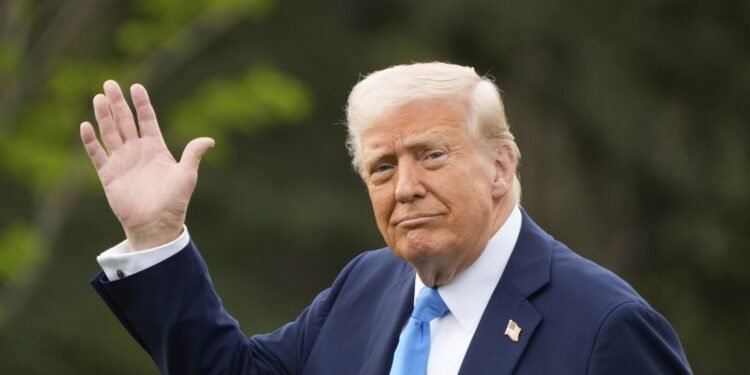WASHINGTON (news agencies) — The executive order directed at one of the country’s most prestigious law firms followed a well-worn playbook as President Donald Trump roared down the road to retribution.
Reaching beyond government, Trump has set out to impose his will across a broad swath of American life, from individuals who have drawn his ire to institutions known for their own flexes of power and intimidation.
Which is how the Paul Weiss, a storied New York law firm that since its 1875 birth has advanced the cause of civil rights, shepherded the legal affairs of corporate power brokers and grown into a multi-billion-dollar multinational enterprise, came to learn it was in trouble. The reason: One of its former attorneys had investigated Trump as a Manhattan prosecutor.
Trump ordered that federal security clearances of the firm’s attorneys be reviewed for suspension, federal contracts terminated and employee access to federal buildings restricted. Yet the decree was soon averted in the most Trumpian of ways: with a deal.
After a White House meeting with the firm’s chairman yielded a series of commitments, including $40 million worth of legal work to support administration causes, the executive order was rescinded, but not without a backlash from a legal community that saw the resolution as a capitulation.
The episode showed not only Trump’s use of the power of the presidency to police dissent and punish adversaries but also his success in extracting concessions from law firms, academia, Silicon Valley and corporate boardrooms. These targets were suddenly made to fear for their futures in the face of a retribution campaign that has been a defining feature of his first two months in office.
Just one day after Paul Weiss’ deal, Columbia University disclosed policy changes under the threat of losing billions of dollars in federal money. A week later, the venerable law firm of Skadden, Arps, Slate, Meagher & Flom cut a deal of its own before it could be hit by an executive order. Before that, ABC News and Meta reached multi-million-dollar settlements to resolve lawsuits from Trump.
“The more of them that cave, the more extortion that that invites,” said Ty Cobb, a White House lawyer in Trump’s first term who has since become a sharp critic. “You’ll see other universities and other law firms and other enemies of Trump assaulted and attacked into submission because of that.”
Some within the conservative legal community, by contrast, say the Republican president is acting within his right.
“It’s the president’s prerogative to instruct the executive branch to do business with companies, law firms or contractors that he deems trustworthy — and the converse is true too,” said Jay Town, a U.S. attorney from Alabama during Trump’s first term. “The president, as the commander in chief, can determine who gets a clearance and who doesn’t. It’s as simple as that.”
Some targets have not given in, with two law firms since the Paul Weiss deal suing to block executive orders. Yet no matter their response, the sanctioned firms have generally run afoul of the White House by virtue of association with prosecutors who previously investigated Trump.
If the negotiations have been surprising, consider that Trump telegraphed his approach during the campaign. “For those who have been wronged and betrayed, I am your retribution,” he told supporters in March 2023.
Less clear was: Retribution for what exactly? Against whom? By what means?
The answers would come soon enough.
Fresh off surviving four federal and state indictments that threatened to sink his political career, and investigations that shadowed his first term in office, Trump came straight for the prosecutors who investigated him and the elite firms he saw as sheltering them.
His Justice Department moved almost immediately to fire the members of special counsel Jack Smith’s team and some prosecutors who handled cases arising from the Capitol riot on Jan. 6, 2021.
The White House followed up with an executive order that stripped security clearances from the lawyers at the law firm of Covington & Burling who have provided legal representation for Smith amid the threat of government investigations. Covington has said it looks forward to “defending Mr. Smith’s interests.”
A subsequent order punished Perkins Coie for its representation of then-Democratic presidential nominee Hillary Clinton during the 2016 campaign and its part in funding opposition research on Trump that took the form of a dossier containing unsubstantiated allegations about Trump’s ties to Russia.
Its business hanging in the balance, Perkins Coie hired Williams & Connolly, a Washington firm with an aggressive litigation style, to challenge the order. A federal judge said the administration’s action sent “chills down my spine” and blocked portions of it from taking effect. That decision could have been a meaningful precedent for other beleaguered firms.
Except that’s not what happened next.








 United Arab Emirates Dirham Exchange Rate
United Arab Emirates Dirham Exchange Rate

